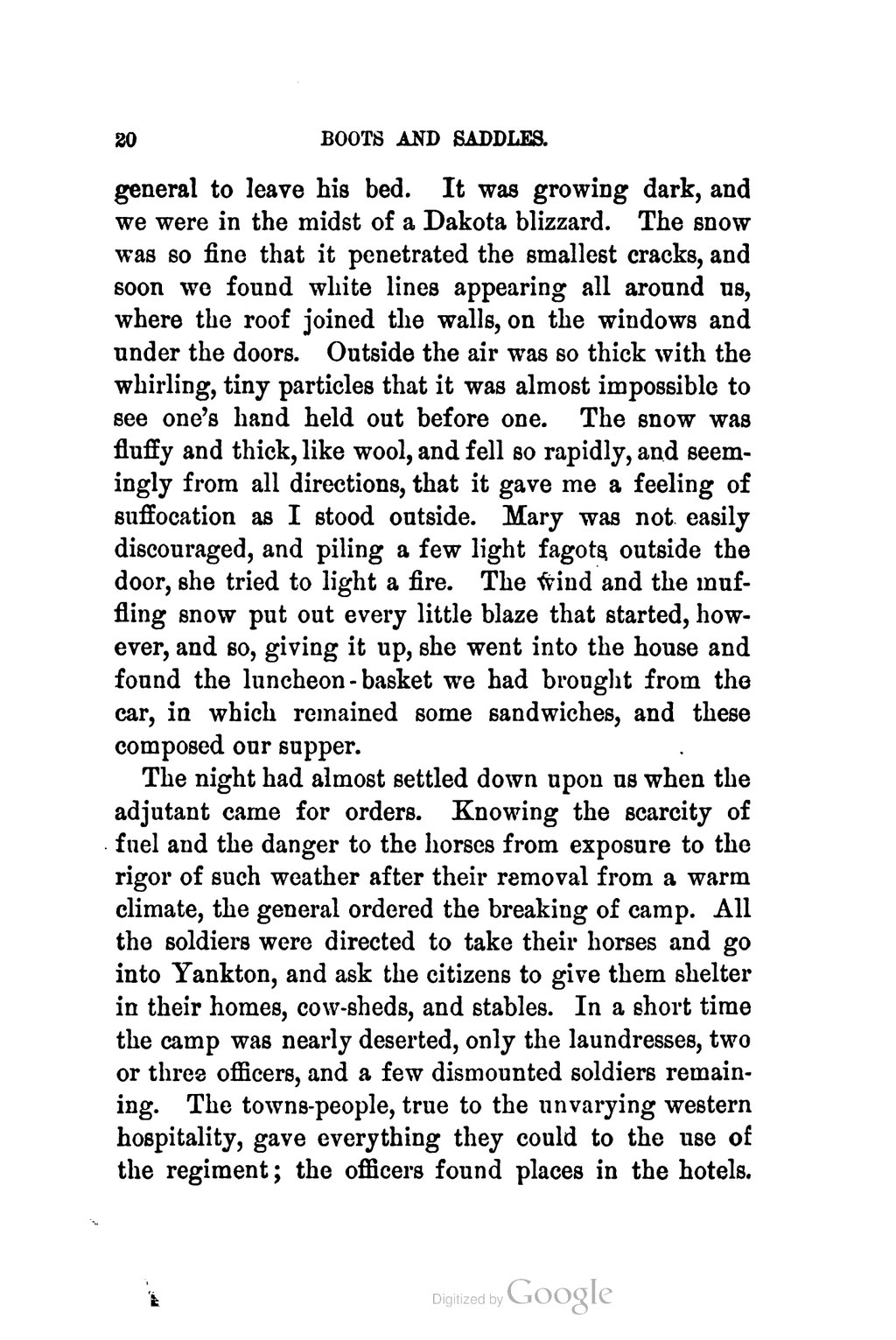general to leave his bed. It was growing dark, and we were in the midst of a Dakota blizzard. The snow was so fine that it penetrated the smallest cracks, and soon we found white lines appearing all around us, where the roof joined the walls, on the windows and under the doors. Outside the air was so thick with the whirling, tiny particles that it was almost impossible to see one's hand held out before one. The snow was fluffy and thick, like wool, and fell so rapidly, and seemingly from all directions, that it gave me a feeling of suffocation as I stood outside. Mary was not easily discouraged, and piling a few light fagots outside the door, she tried to light a fire. The wind and the muffling snow put out every little blaze that started, however, and so, giving it up, she went into the house and found the luncheon-basket we had brought from the car, in which remained some sandwiches, and these composed our supper.
The night had almost settled down upon us when the adjutant came for orders. Knowing the scarcity of fuel and the danger to the horses from exposure to the rigor of such weather after their removal from a warm climate, the general ordered the breaking of camp. All the soldiers were directed to take their horses and go into Yankton, and ask the citizens to give them shelter in their homes, cow-sheds, and stables. In a short time the camp was nearly deserted, only the laundresses, two or three officers, and a few dismounted soldiers remaining. The towns-people, true to the unvarying western hospitality, gave everything they could to the use of the regiment; the officers found places in the hotels.
